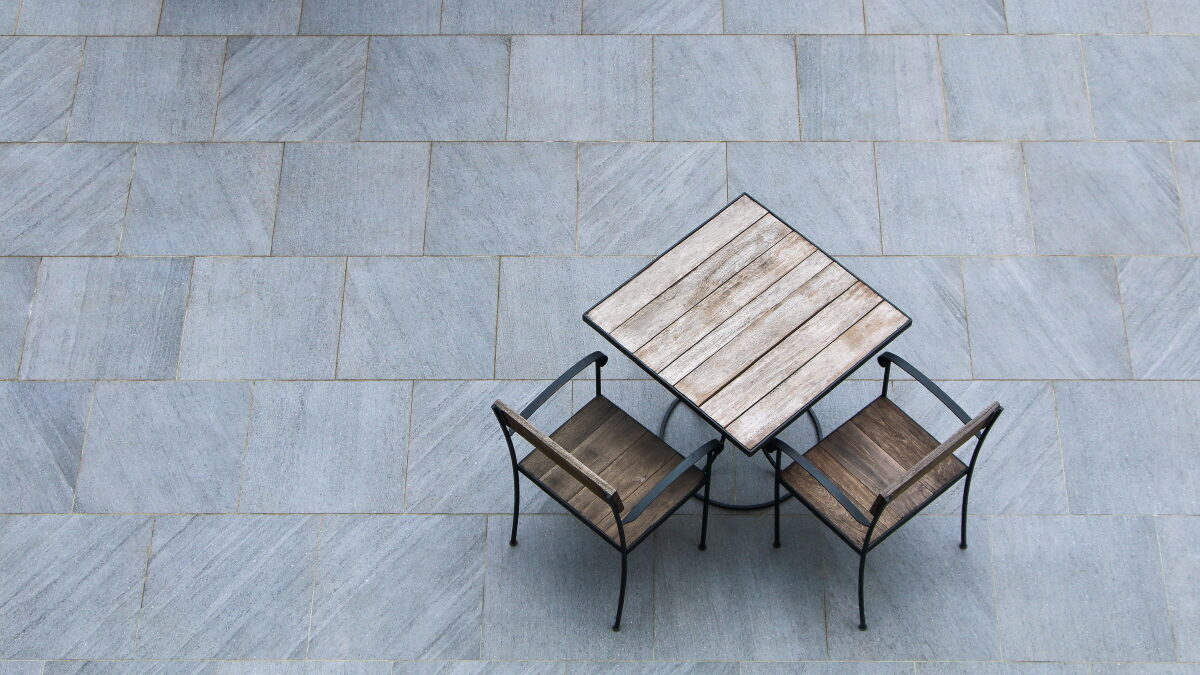Many interior design projects call for square-shaped tiles. Maybe you’re redoing your bathroom floor or searching for a colorful tiled backsplash for your kitchen counter. If so, a square vinyl material could be the right option for your space. Vinyl is one of the most durable, visually versatile, and cost-effective flooring choices available on the market in 2023. What’s more, vinyl comes in many variations of shapes, sizes, and price ranges. In this article, we’ll take a look at which types of vinyl you can find in squares, available sizes of vinyl tiles, and considerations for how to select the best vinyl for your needs.
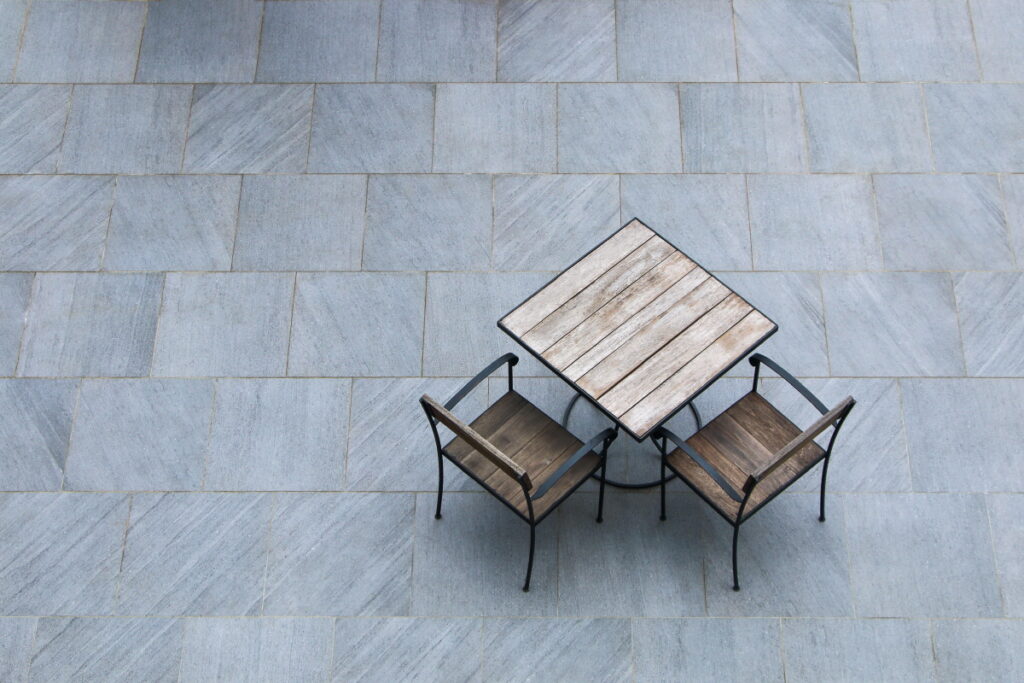
Various sizes of vinyl flooring
Vinyl flooring comes in several sizes, depending on the type of vinyl material you select. Let’s take a look at the types of vinyl on the market and what shapes you can find it in.
Vinyl flooring typically comes in three formats: vinyl planks, vinyl tile, and vinyl sheets. Vinyl planks, which mimic the natural texture and color of wood grains, are most often created in the shape of rectangles. Vinyl planks are, on average, between 3 to 4 feet in length and 4 to 6 inches wide. If you’re looking for square-shaped vinyl pieces, you’ll want to use vinyl tile or vinyl sheets instead.
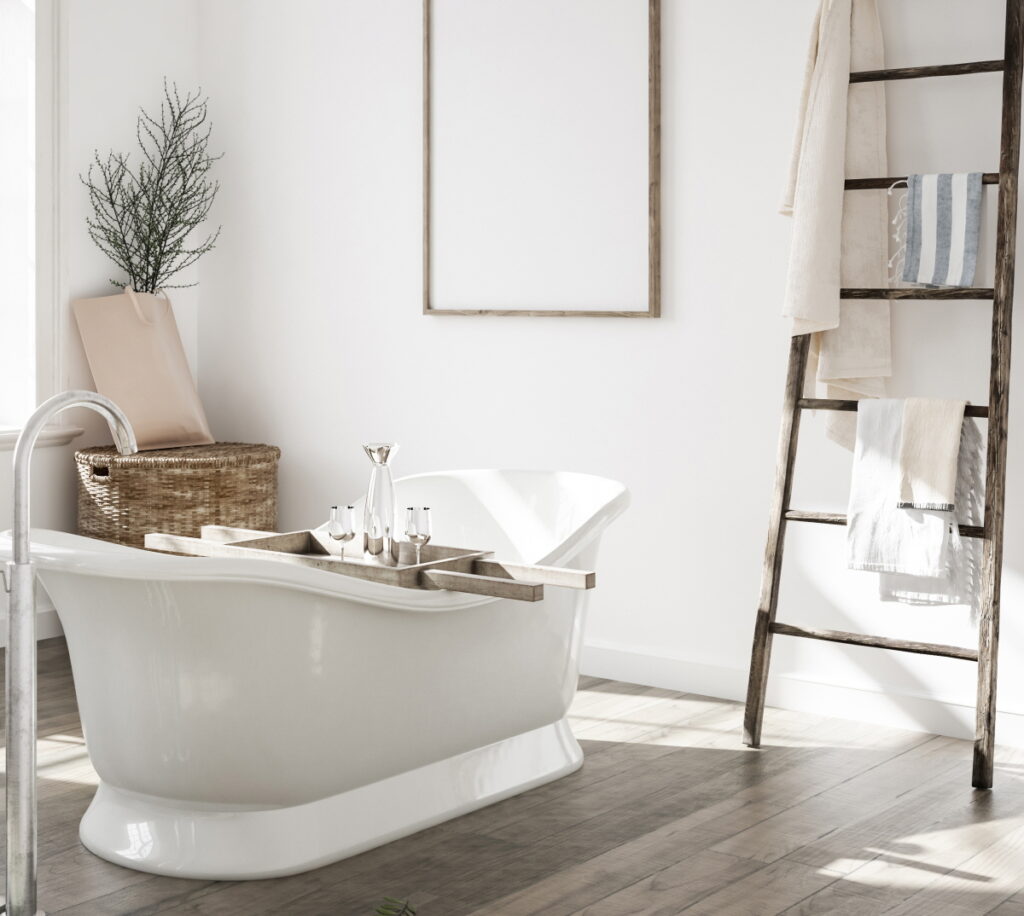
Vinyl tiles are a synthetic material made of three layers: PVC vinyl, a realistic 3D photo layer, and a durable protective layer. Vinyl tiles authentically replicate the natural look of stone materials. They are DIY-friendly and easy to install at home. Vinyl tiles can often be found in peel-and-stick formats, where the individual tiles can adhere to the floor with glue. They can also be installed as a “floating” floor using a click-and-lock method where the pieces fit together without adhesive. If part of your vinyl tile flooring becomes damaged, it’s easy to replace a single tile without needing to replace the entire floor. Most standard tiles come in 12”x12” sizes, but you can find larger or smaller custom tiles based on your needs.
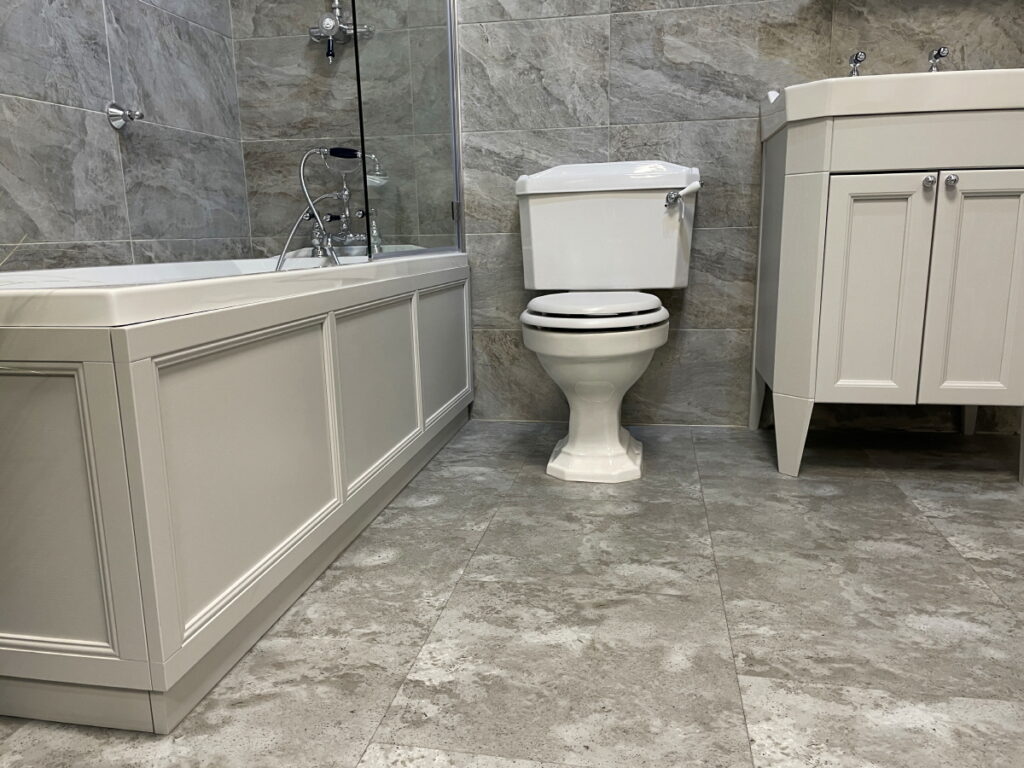
Vinyl sheets are also made of a synthetic resin material, but are manufactured in large rolls and intended to cover larger floor areas. Because vinyl sheets don’t have permeated breaks, like tiles or planks, they are almost entirely resistant to moisture and great for applications where fall prevention is a concern. Vinyl sheets can carry more weight without warping than tiles, so they are used in heavy-duty environments like commercial offices, restaurants and kitchens. Vinyl sheets can be printed with highly intricate colors, patterns, and mosaic designs, making them one of the most visually versatile flooring materials. Vinyl sheets are sold in precut rolls usually ranging from 6 to 12 feet wide.
What vinyl flooring comes in squares?
The following are common types of vinyl flooring that are manufactured in squares. Per square foot, vinyl flooring is one of the most economical flooring options that you can choose, particularly when compared to the cost of natural materials like hardwood or stone flooring. Multiple factors can impact the cost of vinyl flooring, including the quality of the vinyl, the brand, the thickness of the material, and the design.
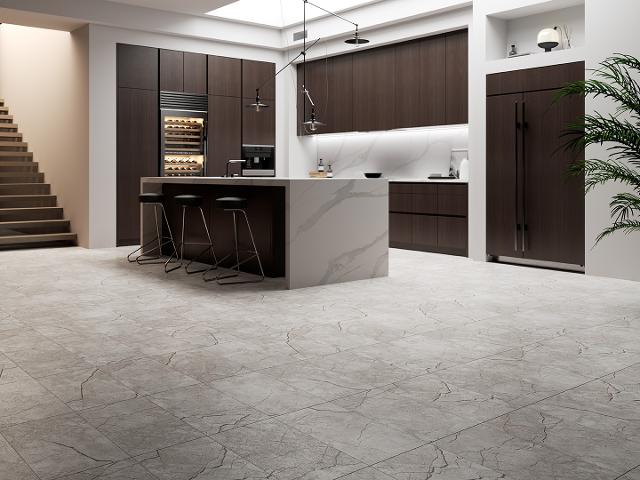
Luxury Vinyl Tile (LVT)
Luxury vinyl tile is a type of vinyl tile with a hyper-realistic 3-D photo layer. It is usually manufactured anywhere from 12”x12” to 18”x”18” square tiles. These typically cost between $3-$10 per square foot. LVT tends to have the largest variety in design options of any type of vinyl and high durability, making it an excellent long-term investment.
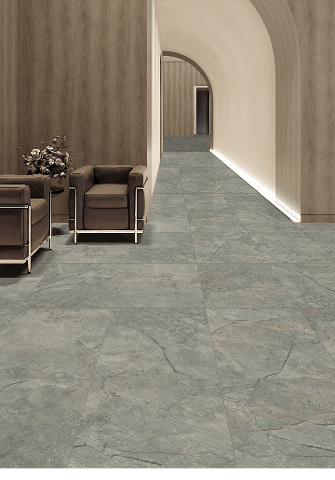
Vinyl Composite Tile (VCT)
Vinyl composite tiles are sturdy tiles often used in commercial applications, like a multi-story office. VCT comes in sizes ranging from 6”x6” to 18”x18”. On average, you can expect to spend anywhere from $2-$11 per square foot for VCT.
Solid Vinyl Tile
Solid vinyl tile is a type of flexible, resilient material made from cutting sheet vinyl into tiles. It performs well in heavy-duty environments, like spaces with heavy furniture. You can find solid vinyl tile in sizes ranging from 12”x12” to 36”x36”.
Sheet Vinyl
Sheet vinyl is usually manufactured in 6 to 16-foot rolls. It costs between $1-2 per square foot. However, sheet vinyl does need to be installed by a professional, which will increase the overall cost of your project. In addition, if a section of your vinyl sheet floor is damaged, you will need to re-cut and replace the entire roll, rather than simply replacing one tile or plank.
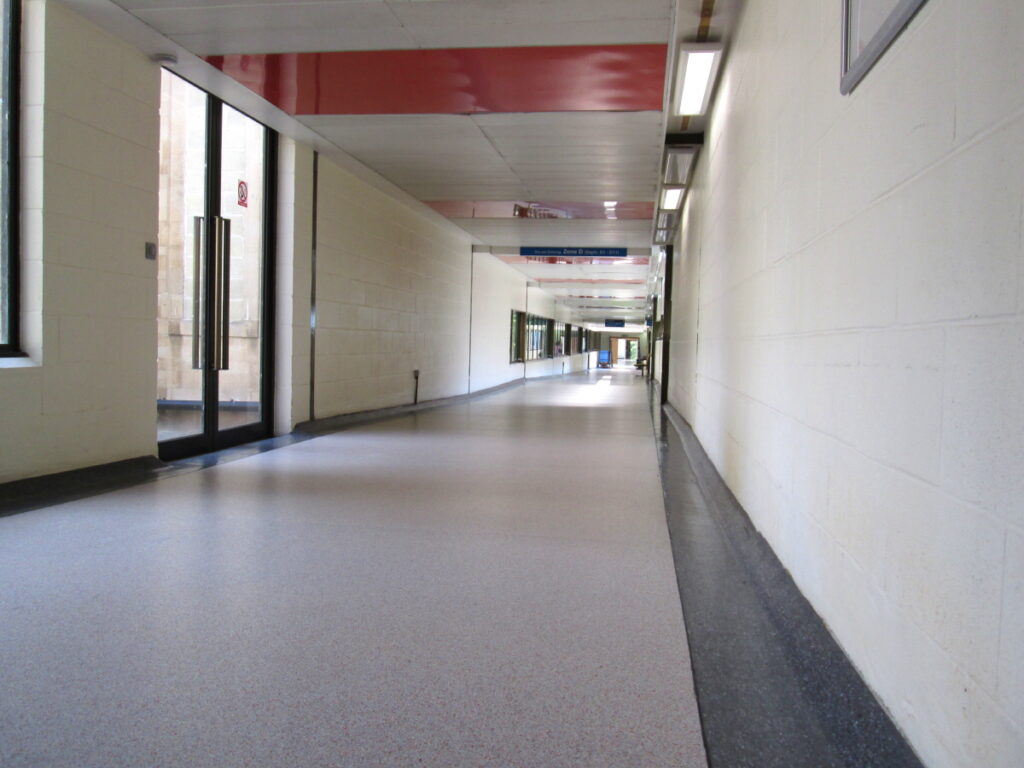
Choosing the best vinyl flooring for you
If you’re seeking vinyl flooring in a square shape, the information above will help you select the right material type and size for your project. No matter which type of vinyl you decide on, it will come with the many benefits vinyl provides. First, vinyl is an incredibly durable material. It’s highly resistant to scratches, wear, and stains, meaning it holds up in high-traffic areas or homes with children and pets. Its water-resistant properties make it a clear choice for moisture-prone rooms like bathrooms, kitchens, and entryways of the home. It is low maintenance to clean and maintain. Your average home vacuum, cleaning materials, and mop will keep your vinyl looking new for years to come. The average lifespan of a vinyl floor is 15-25 years, significantly longer than some other options like carpet (with a 5-7 year lifespan). Note that underfoot comfort, soundproofing, and moisture control can be enhanced with a padded underlayment under any type of vinyl.
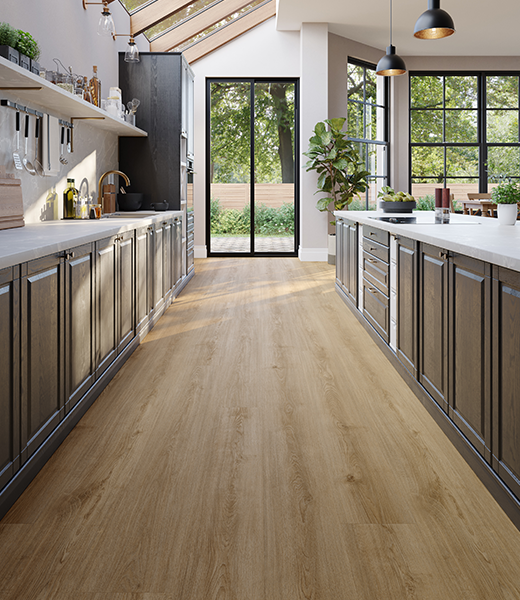
Contact us
If you’re working on a vinyl flooring installation project and have questions, please reach out to the LX Hausys team for support. We can walk you through the variety of vinyl flooring materials on the market, what shapes and sizes of vinyl will work for your project, and the benefits of selecting vinyl for your renovation. Schedule a free consultation with us today.

